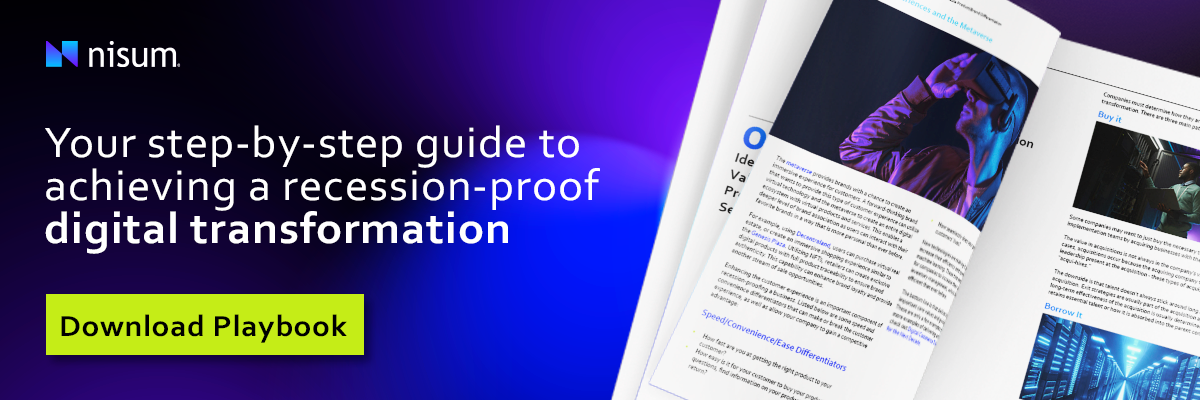 Picture Credit: Unsplash
Picture Credit: Unsplash
From the birth of the Internet to current times, we have seen disruptive changes across all industries that the Internet has touched. It has redefined everything: business, education, entertainment, sports, and healthcare, to name a few. It has transformed and changed how we interact through various social networking platforms. We live in an exciting era of change, and in fact, we will witness another Internet inflection point - the Metaverse.
Although it is in its early stages, the Metaverse will change how people interpret and interact with technology and themselves. Some define the Metaverse as a virtual world platform that allows people to interact. Some relate it to virtual reality and describe it as Web 3.0. This post views it as a broader term that seamlessly connects our physical world with several virtual world platforms using existing or newer interfaces.
Some experts state that the 3D experience is one of the most critical aspects of the Metaverse. Given its thirst for network speed and high level of interaction, the gaming industry is leading this space and has a decade of head start developing such experiences. The closest example we can relate to the Metaverse exists in gaming platforms such as Roblox, Second Life, and Minecraft. These gaming platforms provide users with an immersive 3D experience of a synchronized view. However, the current platforms have performance limitations and can support only several hundreds of users on the same server.
In 2021, two significant events defined the emergence of the Metaverse. The first was Facebook rebranding itself as "Meta," and the second was the IPO of Roblox and seeing its market capitalization touch $80 billion. Bloomberg estimates that the Metaverse will be an $800 billion market by 2024.
The COVID Pandemic Has Accelerated the Evolution of This New Space
During the pandemic, most people have spent more time at home and online. The younger generation quickly adapted to the new norm, replacing physical interaction with online experiences. The "kids" undoubtedly outclass their elders in utilizing the different online gaming platforms for a more immersive and superior communication interaction with their peers.
Seven Areas That Will Be Critical in the Metaverse
1. Digital Identities
In the Metaverse, an avatar can represent virtual identities. People have only one identity in the real world, and in the Metaverse, they may have one or more identities. The avatar is an extension of oneself in the real world, and it provides an opportunity or place to see and be seen with family, friends, or colleagues in the workplace.
2. Tourism
The Metaverse will comprise integrated virtual worlds built by individuals, communities, and large organizations. The scale of cities built in these worlds will be massive and possible using AI-based generators. Another exciting possibility is to create worlds matching the different eras of humanity. The entire landscape will be 3D based with near to realistic visuals. These new worlds will open the door for virtual tourism for people who wish to explore these fantastic landscapes to learn about the past, present, or future.
3. Education
Metaverse-based schools and educational institutions will redefine how education is imparted to the pupils. New methods will be developed to provide more immersive and experiential learning. Classes taught in one language will be synchronously relayed in many languages, giving the viewers and listeners an impression that the instructor speaks in their language of choice. Language or location will no longer be a barrier to learning from the best instructor available anywhere in the world.
4. Retail
Similar to the concept of each business having a web presence to sell products online, the new norm in the Metaverse era will be to have a virtual presence. Brands may sell their virtual or physical products in the Metaverse. For example, one could “try on” new clothes and shoes and buy them for their avatar. The same retailer in the Metaverse could have the new clothes and shoes delivered to the buyer in the physical world.
5. Digital Assets
The Metaverse will offer consumers the ability to purchase digital assets. For example, a car purchased in one virtual world will be available in another. If one buys a car in one gaming platform in a current gaming context, it may not be available in another. In the Metaverse, the digital asset that one buys will have full ownership of that unique instance of the asset. These assets can then be sold to anyone or upgraded by resellers.
6. Entertainment
A concert organized in the physical world may accommodate thousands of fans with physical limitations on attendance numbers, logistics, and security. However, in the Metaverse, the same concert may be offered to millions of fans who can experience the live event in the same atmosphere as the live audience at the physical concert. The Metaverse will offer artists and their fans new experiences.
7. Corporations
Companies would build their office facilities in the Metaverse. For meetings, employees may virtually be present in a room and have rich interactive communication while having a 360 view of the surroundings, joining in from various physical locations and time zones, and communicating as if they were all at the same place.
Six Technologies That Will Shape the Foundation of the Metaverse
1. Blockchain
Blockchain technology has various Metaverse business use cases. Amongst the most popular is cryptocurrency. The unique characteristics of this technology offer open numerous business opportunities. The Metaverse space may support NFTs (non-fungible tokens), allowing digital asset ownership and creating a new market. It may also become the platform to exchange digital currencies and financial instruments such as Bitcoin and Etherium, which could play an essential role in fueling Metaverse marketplaces.
2. Gaming
Gaming engines' technology has matured to provide a seamless synchronized experience of 3D graphics on ordinary devices. The two most popular engines are Unity by Unity Technologies and Unreal by Epic Games. These gaming platforms can offer a considerable role in creating the building blocks for the Metaverse to allow communities or organizations to build their virtual worlds while providing an integrated experience.
3. 3D Software
Pixar has created USD (Universal Scene Description), a 3D computer graphics data framework. It's a very powerful technology that Pixar has perfected over ten years. Since its creation, several platforms have adopted this universal format. This technology may provide the means to transport digital assets across the platform. The other 3D graphic technology worth noting is WebGL, which helps render high-performance 3D and 2D graphics within any compatible web browser.
4. Graphic Computing
The vision for Metaverse is to display graphic content to millions of users synchronously. A critical foundation stone for the Metaverse will be to stream and render high-quality graphics. Nvidia is the leader in this space.
5. Faster Networks
Even without the Metaverse, faster networks will be needed as more devices are connected to the Internet. The requirement will continue to grow as current network providers realize their Metaverse vision and opportunities. This means more increased investment in this infrastructure and more opportunities for innovation.
6. Artificial Intelligence (AI) and Machine Learning (ML)
Almost all industries utilize AI and ML. Many use cases, platforms, and business applications could utilize AI and ML in the Metaverse to enhance their services and products. An example would be the testing and training models for a self-driving car. If executed in a virtual world, the Metaverse may be less expensive and provide far more extensive opportunities.
Five Key Metaverse Takeaways To Consider
1. Initial hype will turn into utility: Metaverse will probably go through the hype cycle in the coming months and years, but it will stabilize and deliver the promised vision.
2. Early adoption is key: Companies that invest early will have an advantage. Facebook has taken a giant leap recognizing the importance of the virtual world, and other major players will follow suit. You should see companies start building their short to long-term strategies around the Metaverse.
3. Significant investment is needed: There is a vast investment projected to be made in this space. This will fuel the development and help expedite it to make it a reality within a shorter period. Experts predict that we will see many great solutions and innovations in this space within just the next five years.
4. Capture Gen Z to succeed: The newer generations will adapt to the new paradigm with ease. Companies that target this segment now and want to maintain them throughout their lives will benefit by making the Metaverse experience as fun as possible and will prove to be quite lucrative.
5. Laggards will be left out: All businesses will eventually have a presence in the Metaverse. It happened with the Internet. Businesses that lag will be the ones that will either adapt to survive or phase out.
Let Nisum Help You Reach Your New Technology Goals
The Metaverse stands to change and disrupt the internet and the world. Nisum has successfully ridden the waves of disruption and knows how to best strategize, plan, and deploy solutions that can put you and your company in the lead. Let Nisum’s knowledge and expertise provide you with the path to digital transformations to new technologies like the Metaverse and Artificial Intelligence.
Contact us to learn more about how Nisum can develop your technology competencies and implement best practices across teams, programs, and portfolios for your organization.






